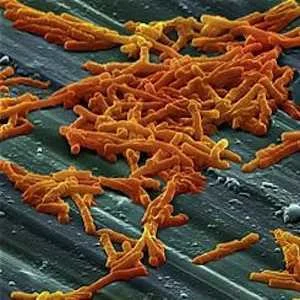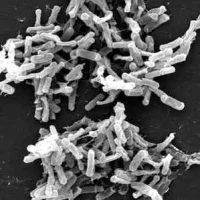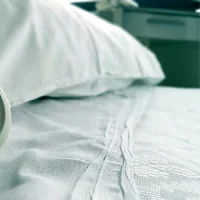According to new research conducted by Penn Medicine infection control specialists, ultraviolet robots can clean rooms and help reduce the transmission of Clostridum difficile among cancer patients by 25 percent.
Blood cancer patients are a group that is more vulnerable to hospital acquired infections. Interventions using UV robots not only reduced the rates of infections but also saved approximately $150,000 in annual direct medical costs.
C. difficile may not be as deadly as other bacteria but they are harder to clean since they form spores that are resistant to many disinfectants. The bacteria can also persist in the hospital environment for months. It is estimated that approximately 500,000 people contract C. difficille annually while in the hospital while 15,000 people die directly from a C. diff. infection. Cancer patients are especially vulnerable to these infections since their immune systems are already compromised. In cancer units studied at Penn, the number of cases of C. difficile infections were five times the rate of all other units in the hospital combined.
Significant effort has already been made to reduce the transmission of hospital acquired infections. Cleaning tactics such as scrubbing, mopping, spraying and wiping have been performed by Environmental Services (EVS) professionals in hospitals across the U.S. but it still remains unclear as to which cleaning methods are the most effective and the most practical. These results from the use of UV robots, which use flash UV lights across the room to lock onto the organisms and kill them, seem very promising.
"There weren't a lot of studies showing the efficacy of UV lights to clean hospital rooms," said David Pegues, MD,, a professor of Infectious Diseases in Penn's Perelman School of Medicine and a healthcare epidemiologist in the Hospital of University of Pennsylvania's Infection Prevention and Control. "These results help fill that gap. This is a cost-saving measure that showed a sizeable reduction in infections for a high-risk group of patients--and set the stage for further implementation of the technology at our hospitals."
The researchers found that the use of an ultraviolet germicidal irradiation robot after the room had been cleaned by EVS reduced the number of infections as compared to the year with no robot. They did not find any adverse impact on room turn around. In addition, there was a 16 percent increase in infections in units without the UV robot during the period of this study. The researchers also found a 25 percent reduction in cases during the 52-week intervention period as compared to the baseline period.
Source: University of Pennsylvania School of Medicine
Image Credit: Wikimedia Commons










